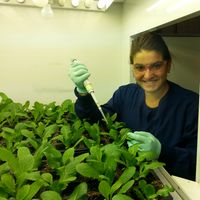Antimicrobial resistance has been recognized as a significant global health priority that threatens to take modern medical and veterinary practice back to the pre-antibiotic era. It is a shared concern in both developed and developing countries. Resistant infections are responsible for over 23,000 deaths per year in the United States and 25,000 deaths per year in the European Union. According to the World Health Organization, "This is a serious threat that is no longer a prediction for the future; it is happening now in every region of the world and has the potential to affect anyone, of any age, in any country". As bacterial pathogens continue to develop resistance to drugs, scientists are searching for new ways to treat bacterial infections.

A new study published in Molecular Cell suggests that there is a common mechanism for the way bacteria are able to survive treatment with antibiotics. In this study, researchers from the University of Leuven (KU Leuven) in Belgium discovered that a gene known as Obg plays a major role in bacterial persistence. The gene is involved in the synthesis of nucleic acids and proteins as well as induces a state of dormancy in bacterial cells during periods of stress or starvation.
When Escherichia coli and Pseudomonas aeruginosa were treated with antibiotics, high levels of Obg were detected in both bacterial species when they were able to survive the treatment. According to researchers, this suggests a common mechanism that allows different species of bacteria to persist during antibiotic treatment.
It is suggested that the ability of bacteria to convert to this dormant state is considered to be the main reason why antibiotics often fail during the treatment of bacterial infections; however this theory remains controversial. This study reveals a potential new gene target (Obg) for future treatment of infections. While these findings are very exciting, much more research needs to be done in order to determine the full potential of such treatments.
Sources: Molecular Cell, Medical News Today, World Health Organization









